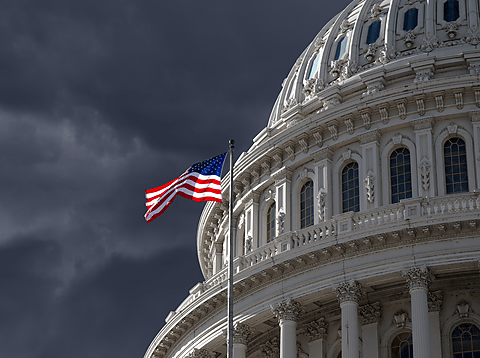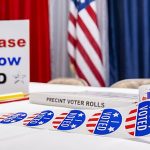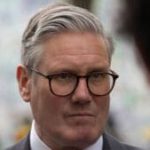
Nicholas Anthony
Both the House and Senate held hearings on the issue of debanking last week. Perhaps the most disappointing occurrence was the repeated claim by some members of Congress that debanking is a “fake” issue. Were that not enough, other members of Congress took this moment as an opportunity to promote levying even more restrictions on the financial system. Still, there were some things to be optimistic about.
Choke Point or Hoax Point?
First, is Operation Choke Point 2.0 real? In the House, Representative Al Green (D‑TX) said, “The name “[Operation Choke Point] 2.0” refers to a fake program… to restrict the cryptocurrency industry’s access to the banking system.” Later on, Representative Nikema Williams (D‑GA) echoed a similar statement, saying that the hearing was about “fake oversight.”
Had these members of Congress been open to the testimony of the witnesses, they would have learned from Paul Grewal, Coinbase’s chief legal officer, that the Federal Deposit Insurance Corporation (FDIC) sent dozens of letters to banks instructing them to “pause all crypto asset-related activity.” They would have further learned that even the Office of Inspector General found issues with this practice. Furthermore, they would have learned that this information only became public after Coinbase took the FDIC to court.
As Grewal pointed out in his testimony, the court stated it was “concerned with what appears to be FDIC’s lack of good-faith effort in making nuanced redactions” and that the FDIC “cannot simply blanket redact everything that is not an article or preposition.”
With that said, there is a distinction to be made between what is known as “Operation Choke Point” and “Operation Choke Point 2.0.” Operation Choke Point was an official government program. It began with a Department of Justice memo written in 2012 and did not end until 2017. Operation Choke Point 2.0, however, is a name that was coined by investor Nic Carter and has been used widely as an unofficial title for the general sweep of government pressure on cryptocurrency. So, while there is no evidence (at least not yet) that there is an operation officially running under the Choke Point banner, there is evidence that the FDIC repeatedly pressured banks to stay away from cryptocurrency.
Fair Access, Again
The Fair Access to Banking Act also made an appearance amidst the hearings after being reintroduced by Senator Kevin Cramer (R‑ND) and Representative Andy Barr (R‑KY). In the press release for the bill, Senator Cramer said, “Financial institutions are backed by taxpayers, for crying out loud! The Fair Access to Banking Act ensures that banks provide fair access to services and enacts strict penalties for categorically discriminating against legal industries and individuals.”
By “strict penalties,” he refers to how the bill would revoke a bank’s access to deposit insurance, the automated clearing house, the discount window, and more. In other words, if a bank violates the bill’s requirements, the bank would effectively be shut down and all its customers would effectively be debanked due to the bill.
When discussing the idea behind the bill, former Senator Pat Toomey (R‑PA) recently warned how impractical it would be to limit business decisions to strictly quantifiable financial information. “I sit on several boards, and every company in America rightly takes into account reputational risk, and … there’s other hard-to-quantify risks banks have to take in mind,” said the former senator. “I don’t want to put that decision in the hands of government.”
Yet, it’s not just a matter of impracticality. It’s also an example of how the government seems to only get more involved in Americans’ daily lives over time. Across the country, there are legitimate concerns about regulators cutting off access to financial services, but the approach in the Fair Access to Banking Act would only give regulators the authority to levy even more restrictions on how people use the financial system.
Something to Be Optimistic About
With that said, there were also some positive moments during the hearings.
Senator Andy Kim (D‑NJ) and Aaron Klein of the Brookings Institution had a great exchange regarding the role the Bank Secrecy Act regime plays in pushing people to the financial fringe. Pointing to my previous work, Klein explained that this system is both inefficient and costly. In short, despite financial institutions spending $59 billion a year complying with this regime and filing over 27 million reports, those reports only initiated 372 criminal investigations. However, while the Bank Secrecy Act regime is not catching criminals, it is making it harder for financial institutions to serve customers.
Another notable moment was that many members of Congress recognized the distinction between operational and governmental debanking. In other words, they recognized that there is a difference between private businesses deciding how they wish to conduct their day-to-day operations and government officials deciding how those private businesses should operate.
Finally, Old Glory Bank CEO Mike Ring did well to repeatedly caution senators against levying even more restrictions on the market. He noted that “additional regulations telling banks who they must bank” will certainly lead to unintended consequences. Instead, he explained that the free market is the solution, citing his bank as an example. Ring told Congress, “[I]nstead of sitting around complaining about what the Big Banks were doing, we created Old Glory Bank to be a market response.” This type of attitude is what’s needed, not calls for even more restrictions.
Conclusion
So, while some officials see this moment as a case of “fake news” or as an opportunity to restrict the financial system even further, there is an opportunity to carve a better path. Representative Ann Wagner (R‑MO) said it well, noting that individuals should be free to seek services just as banks should be free to make decisions about the customers they serve.
To do that, Congress should expose how widespread debanking has become and cut out the tools that the government has used to pressure banks and other financial institutions. As I have explained in a recent paper, that means reforming the confidentiality that has long kept customers in the dark and reforming the larger Bank Secrecy Act regime. Doing that will help reveal more areas for reform, remove the tools used in governmental debanking, and reduce the burdens that have limited financial services.








